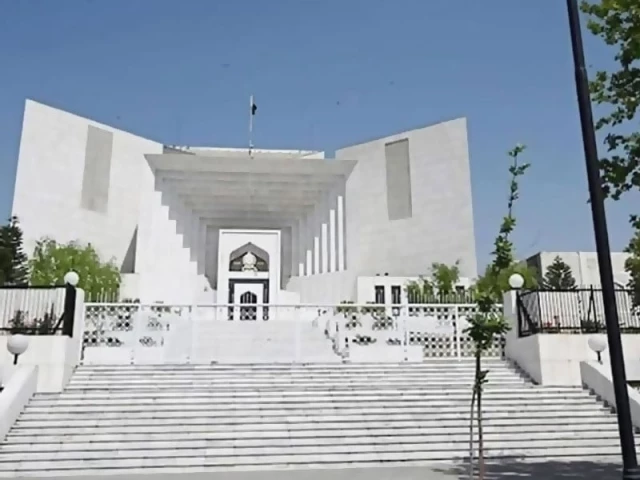Mediation not a threat to litigation: SC judge
Aurangzeb calls for embedding ADR in system

Supreme Court's Justice Miangul Hassan Aurangzeb has observed that strengthening Alternate Dispute Resolution (ADR) mechanisms not only enhances dispute resolution process but also encourages foreign investment.
"Disputes can be referred to mediation at the pre-trial stage as well as from pending litigation to ensure timely and amicable settlements," the judge said on Sunday. He was one of the speakers at a ceremony held at the conclusion of a six-day Civil and Commercial Mediation Training Programme.
The internationally accredited programme was organized by the International Mediation & Arbitration Centre (IMAC), established by the Ministry of Law & Justice in collaboration with ADR-ODR International.
Justice Aurangzeb also emphasized the importance of maintaining professional standards and credibility for mediators. He noted that mediation is not a threat to litigation but rather its partner and ally.
He underscored the need to embed mediation within the judicial system through updated rules and laws, highlighting the importance of standardization for consistency and effectiveness.
Supreme Court's Justice Shahid Waheed, who was also the chief guest, described mediation as a vital tool to reduce case backlogs, strengthen access to justice, and foster harmony.
He outlined Pakistan's policy direction on the ADR, including the preparation of a model law, establishment of court-annexed mediation centres, awareness campaigns, and the "Medifare" vision to nurture a culture of dialogue.
Commending IMAC's role in capacity building through training, he congratulated the participants for becoming "ambassadors of mediation" and stressed that the ADR must be institutionalized, expanded nationwide, and integrated with technology to transform Pakistan's justice landscape.
Held from September 16 to 21, the programme trained judges of the high courts, lawyers, government officers, academicians, and business professionals from across Pakistan.
SAARC Arbitration Council Director General Choining Dorji also spoke on the occasion, emphasizing the strong potential for collaboration with the International Mediation and Arbitration Centre (IMAC).
He noted that while both institutions may appear as competitors, their shared objectives open avenues for meaningful cooperation. Key areas identified include joint case management, training, policy advocacy, and public outreach.



1724319076-0/Untitled-design-(5)1724319076-0-208x130.webp)















COMMENTS
Comments are moderated and generally will be posted if they are on-topic and not abusive.
For more information, please see our Comments FAQ